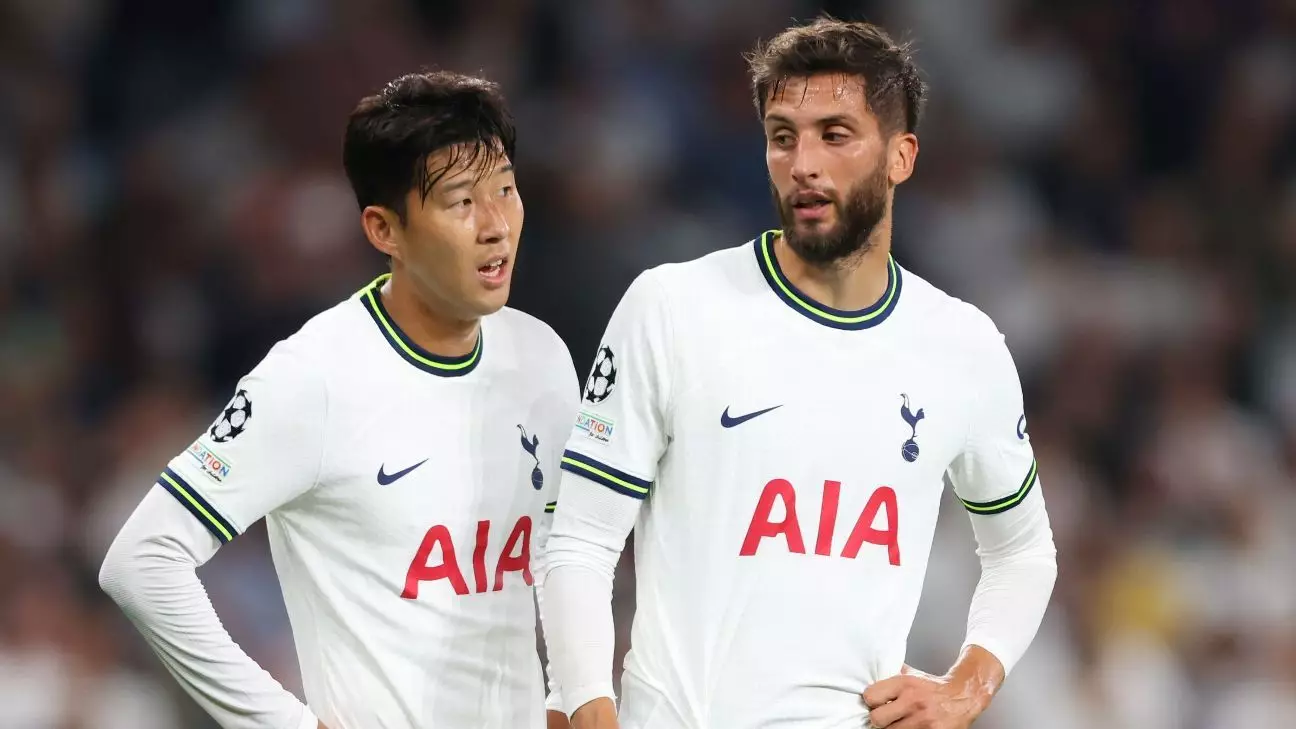Tottenham Hotspur midfielder Rodrigo Bentancur has faced significant repercussions for a recent incident involving inappropriate language during a television interview. The English Football Association (FA) imposed a seven-game ban, along with a hefty £100,000 fine. This decision has ignited discussions surrounding accountability and the influence of public figures in sports. The controversy arose from remarks made on the Uruguayan television show “Por La Camiseta,” where Bentancur responded to a request for a player’s shirt with a comment that has been deemed offensive to some.
The crux of the issue lies in Bentancur’s joking statement that seemed to link Tottenham’s Son Heung-Min with his “cousins,” implying that they all looked alike. Although Bentancur has publicly denied any intention to be hurtful, the FA deemed his remarks an “aggravated breach” of conduct, suggesting that his comments could be interpreted as referencing nationality or ethnicity. This ruling highlights a growing sensitivity and need for awareness regarding language in sports, particularly in a multicultural environment where athletes of various backgrounds coexist.
From a competitive standpoint, the suspension is a major setback for Tottenham. Bentancur will be missing crucial matches, including high-profile Premier League games against clubs like Manchester City, Chelsea, and Liverpool, as well as a Carabao Cup quarterfinal match against Manchester United. These absences could impact the team’s performance as they navigate the challenging fixture list. The situation illustrates how personal behavior can intersect with team dynamics and performance.
Following the fallout, Bentancur expressed remorse for his comments, describing them as a “very bad joke” in an Instagram post. His apology is part of a broader theme in sports, where athletes must navigate the consequences of their words in a social media-driven environment. His teammate, Son, publicly accepted the apology, emphasizing the bond between players and hinting at a need for understanding and compassion in the face of mistakes. This serves as a reminder that athletes are human and, much like anyone else, can err in judgment.
In addition to his suspension and financial penalty, Bentancur is required to engage in face-to-face education sessions focused on the impact of language and cultural sensitivity. This aspect of the punishment serves a dual purpose: aimed at rehabilitation for the athlete and a reminder to the public about the importance of thoughtful communication. As the sports community evolves, incidents like this one can lead to positive change by encouraging better understanding of diversity and inclusion.
Rodrigo Bentancur’s suspension is more than just a disciplinary action; it is a crucial moment for reflection on the responsibilities held by athletes as public figures. The sport world is increasingly aware of language’s power to harm or heal, and the responses to such incidents can shape the conversation surrounding race and representation. As Bentancur prepares to serve his ban and address his conduct, this situation stands as a stark reminder of the importance of respect and sensitivity in the beautiful game.

